Science News from BCVS 2019
Basic Cardiovascular Sciences 2019 Scientific Sessions
July 29–August 1, 2019
Westin Boston Waterfront | Boston, Massachusetts
Helpful links
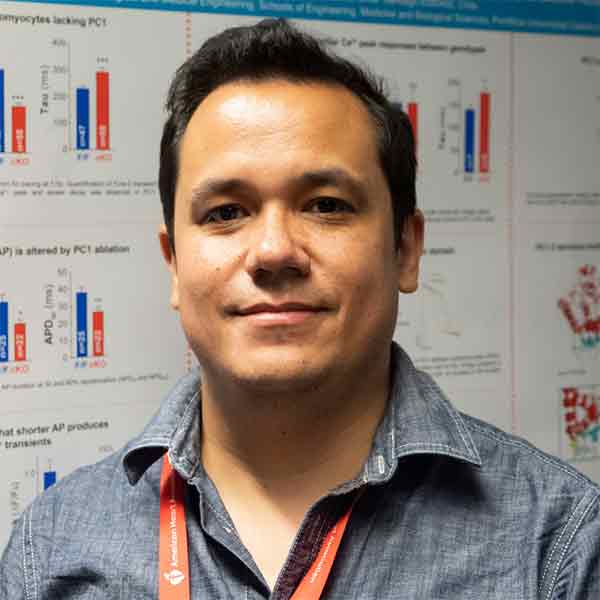
Polycystin-1 Assembles With Kv Channels to Govern Cardiomyocyte Repolarization and Contractility
Francisco Altamirano | UT Southwestern Medical Center, Dallas, TX
- RESULTS: A novel role is uncovered for PC1 controlling action potential duration and SERCA. PC1-deficient cardiomyocytes manifest impaired contractility, likely contributing to contractile dysfunction in autosomal dominant polycystic kidney disease (ADPKD) patients.
- Altamirano's Abstract (opens in new window)(link opens in new window)
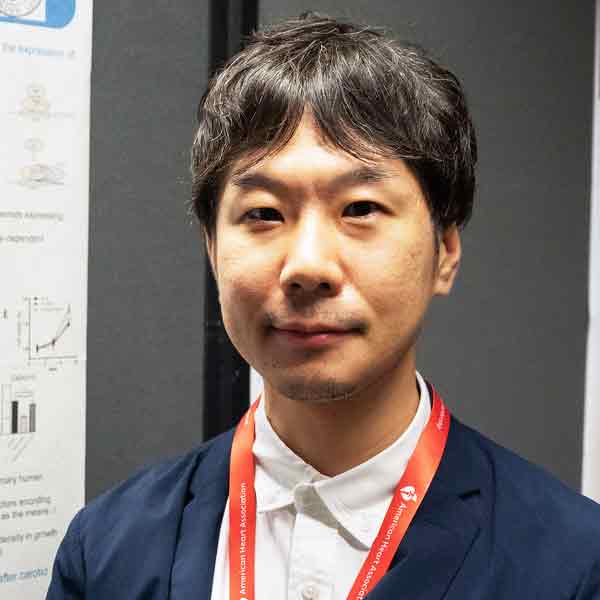
Homeobox A4 Suppresses Vascular Smooth Muscle Cell Phenotypic Switching as a Novel Regulator of YAP/TEAD Transcriptional Activity
Masahiro Kimura | Department of Cardiovascular Medicine, Graduate School of Medicine, Kyoto University, Kyoto, Japan
- RESULTS: HOXA4 is a novel repressor of VSMC phenotypic switching by inhibiting YAP/TEAD-mediated transcription.
- Kimura's Abstract (opens in new window)(link opens in new window)
Neonatal Mouse Heart Regeneration is Dependent on Mononuclear Diploid Cardiomyocytes and Paracrine IGF2 Signaling
Henry M Sucov | Medical University of South Carolina, Charleston, SC
- RESULTS: Heart regeneration process is dependent on proliferation-competent mononuclear diploid cardiomyocytes and paracrine IGF2 signaling.
- Sucov's Abstract (opens in new window)(link opens in new window)
NFkB Promotes Oxidative Stress-induced Necrosis and Ischemia Reperfusion Injury Through NRF2-ARE Pathway
Qinghang Liu | University of Washington, Seattle, WA
- RESULTS: NFkB promotes oxidative stress-induced necrosis and ischemia reperfusion injury through NRF2-ARE pathway.
- Liu's NFkB Abstract (opens in new window)(link opens in new window)
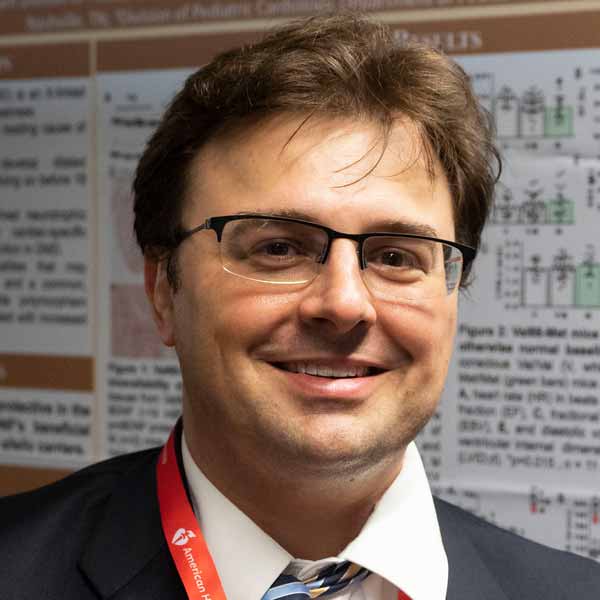
Cardioprotective Effects of Brain-derived Neurotrophic Factor rs6265 Polymorphism in Duchenne Cardiomyopathy
Frank J Raucci, Jr. | Vanderbilt University Medical Center, Nashville, TN
- RESULTS: Brain-derived neurotrophic factor (BDNF) is cardioprotective in Duchenne Muscular Dystrophy.
- Raucci Jr's Abstract (opens in new window)(link opens in new window)
Other science highlighted Monday
The Effects of Age, Menopause, and Body Mass Index on Blood Pressure and Radial Pulse Wave in Women
Chi-Wei Chang, Mii-Ann Medical Center, Taipei, Taiwan
Tuesday's selected science
Keynote Lecturer Christine Seidman on Genetic Approaches to Cardiomyopathy
BCVS Council Vice Chair Beth McNally and BCVS 2019 Co-Chair Jil Tardiff interview Keynote Lecturer Christine Seidman about her recent work on the genetics of dilated and hypertrophic cardiomyopathy and how it might be harnessed to develop new, earlier treatments.
Using Cardiac Organoids to Develop New Drug Therapies for Heart Failure
BCVS Council Chair Joseph Wu interviews James Hudson of QIMR Berghofer Medical Research Institute in Queensland, Australia, about his work using cardiac organoids to identify new targets for developing new drug therapies for treating heart failure.
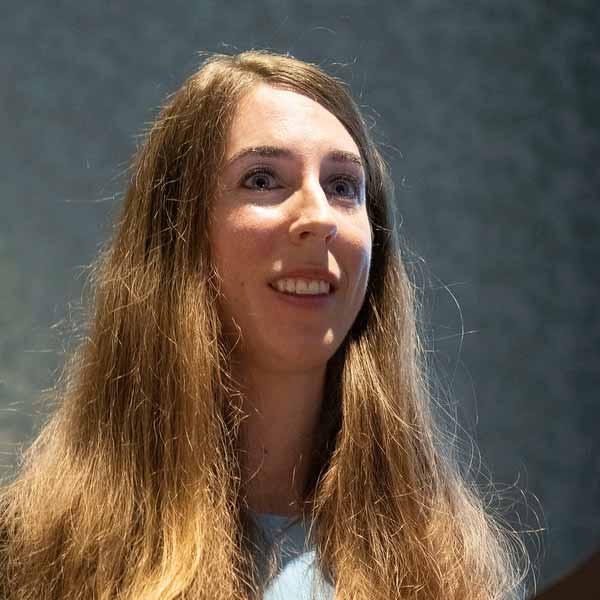
MCL-1 Promotes Drp1-Mediated Mitochondrial Fission as an Adaptive Response to Stress
Alexandra G Moyzis | University of California San Diego, San Diego, CA
- RESULTS: MCL-1 (Myeloid Cell Leukemia-1) promotes Drp1-mediated mitochondrial fission as an adaptive response to stress.
- Moyzis's Abstract (opens in new window(link opens in new window))
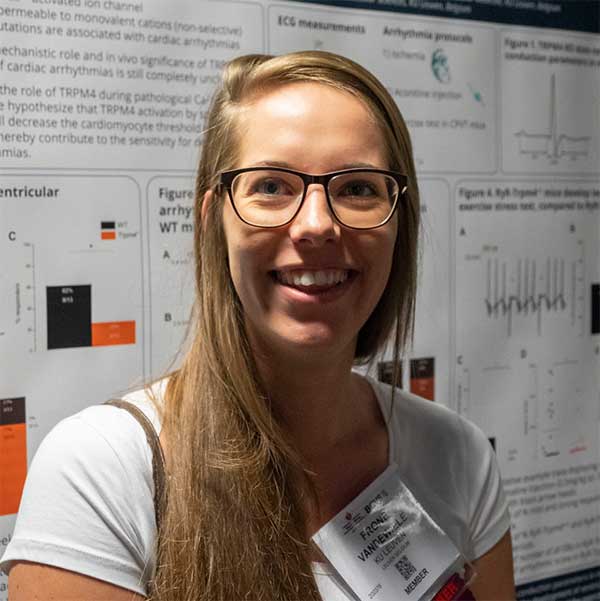
Trpm4 Contributes to Ca2+-dependent Triggered Arrhythmias in Pathological Conditions
Frone Vandewiele | KU Leuven, Leuven, Belgium
- RESULTS: Trpm4 contributes to Ca2+-dependent triggered arrhythmias in pathological conditions.
- Vandewiele's Abstract (opens in new window)(link opens in new window)
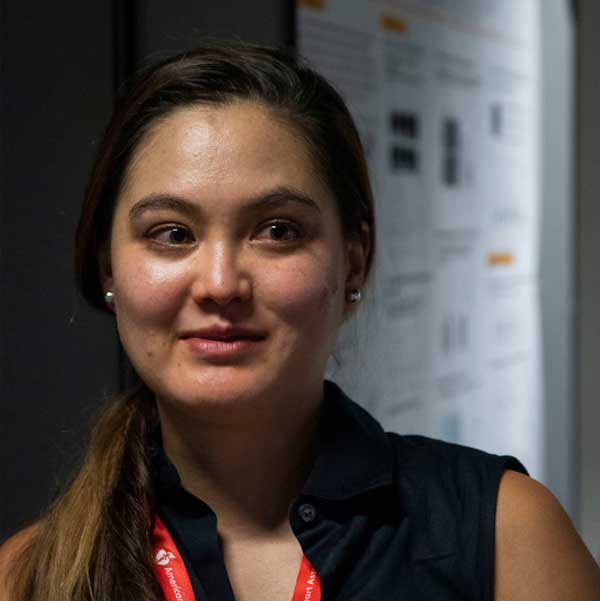
Comprehensive Arteriovenous Metabolomics in the Human Heart
Danielle S Murashige | University of Pennsylvania, Philadelphia, PA
- RESULTS: First comprehensive study of metabolite use and secretion by the human heart suggests ketones may be a preferential fuel source under high workloads.
- Murashige's Abstract (opens in new window)(link opens in new window)
Other science highlighted Tuesday
Studying Cardiovascular Effects of Marijuana on Healthy Individuals Using Human Derived Induced Pluripotent Stem Cells
Tzu-Tang "Thomas" Wei | Department of Pharmacology, National Taiwan University, Taipei, Taiwan
- AHA press release: Antioxidant compound from soybeans may prevent marijuana-induced blood vessel damage
- AHA consumer news: In lab, soybean compound fights blood vessel damage from marijuana
Plasticizer Interaction With the Heart: Chemicals Used in Plastic Medical Devices Can Interfere With Cardiac Electrophysiology
Nikki G Posnack | Children's National Medical Center, Washington, DC
Wednesday's selected science
Genetic Approaches to Identify and Treat Cancer Patients at High Risk for Cardiotoxicity
BCVS 2019 Co-Chair Sakthivel Sadayappan interviews Paul Burridge about his recent work using genetic approaches to identify and treat the cancer patients most at risk of doxorubicin cardiotoxicity and subsequent heart failure.
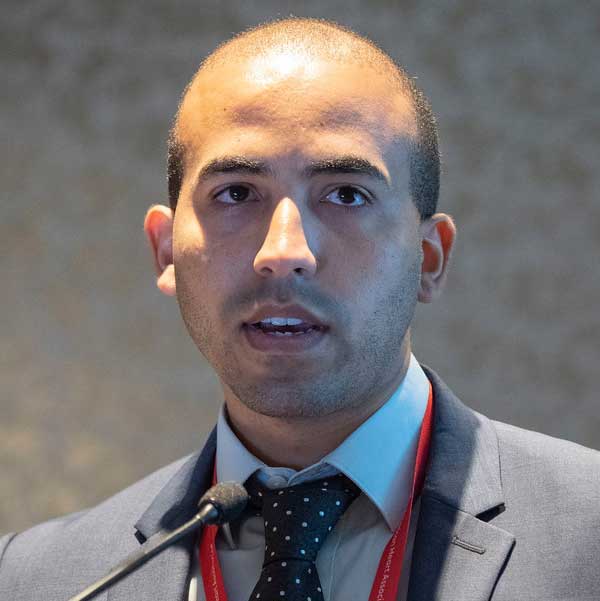
Endogenous-Antigen-Specific T Cell Receptor Activation of CD4+ T Cells in the Heart is Required for Maladaptive Cardiac Remodeling Due to Pressure Overload
Njabulo Ngwenyama | Tufts University, Boston, MA
- RESULTS: Endogenous-antigen-specific T cell receptor activation of CD4+ T cells in the heart is required for maladaptive cardiac remodeling due to pressure overload-induced HF.
- Ngwenyama's Abstract (opens in new window)(link opens in new window)
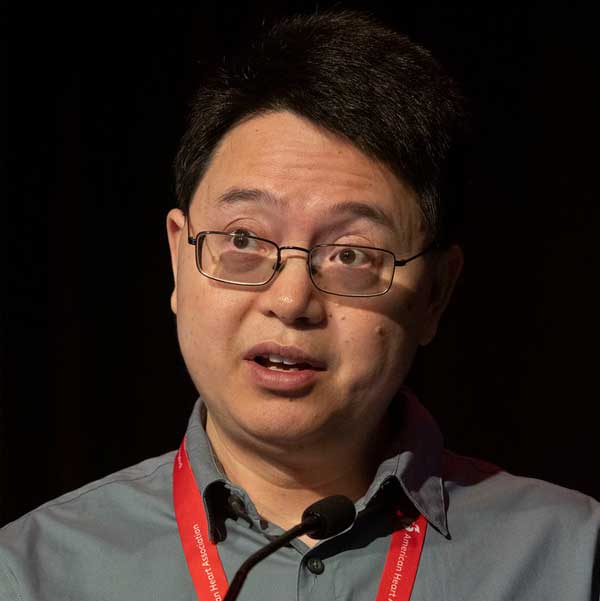
A Novel Ubiquitination Dependent Pathway Regulating Myocardial Necroptosis and Ischemic Injury
Qinghang Liu | University of Washington, Seattle, WA
- RESULTS: A novel ubiquitination-dependent pathway regulating myocardial necroptosis and ischemic injury is identified.
- Liu's Novel Pathway Abstract (opens in new window)(link opens in new window)
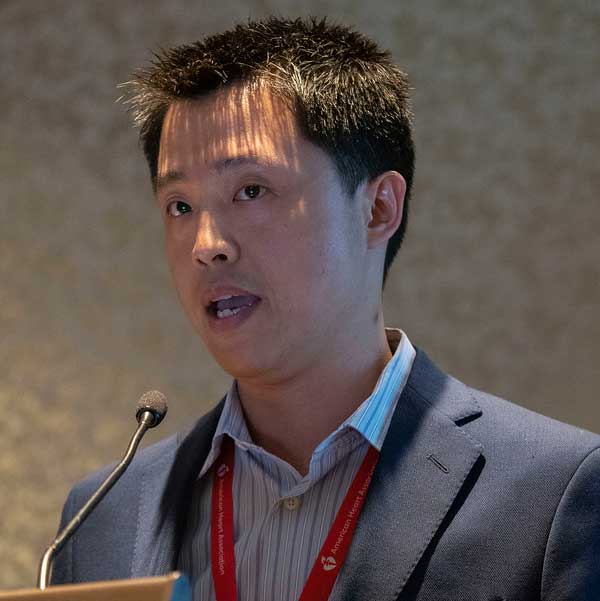
Reduced Cardiac Transmembrane Protein 65 Resulted in Dilated Cardiomyopathy and Progressive Cardiac Fibrosis in vivo
Allen C.T. Teng | University of Toronto, Toronto, ON, Canada
- RESULTS: Reduced cardiac transmembrane protein 65 resulted in dilated cardiomyopathy and progressive cardiac fibrosis in vivo.
- Teng's Abstract (opens in new window)(link opens in new window)
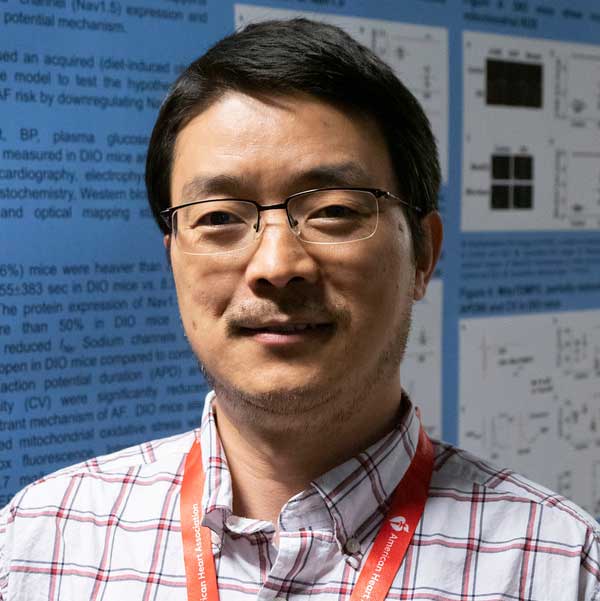
Downregulation of the Cardiac Sodium Channel Nav1.5 Mediates Obesity-Induced Atrial Fibrillation
Liang Hong | University of Illinois Chicago, Chicago, IL
- RESULTS: Obesity increases AF risk by downregulating Nav1.5.
- Hong's Abstract (opens in new window)(link opens in new window)
Thursday's selected science
BCVS 2019 - What We Learned
Co-Chairs Loren Wold, Jil Tardiff, and Sakthivel Sadayappan recap some of the highlights and innovations of BCVS 2019, and invite you to next year's conference.
Outstanding Early Career Award Winner Luigi Adamo
Farah Sheikh interviews Luigi Adamo, this year's winner of the BCVS Outstanding Early Career Investigator Award for his groundbreaking research on the role of myocardial B cells in regulating the composition of leukocytes in the heart and myocardial growth (opens in new window).(link opens in new window)
Precision Intervention of Cardiac Remodeling Based on Cellular Composition Principles Uncovered by Single-Cell Transcriptomics
Peng Yu | Fuwai Hospital, Beijing, China
- RESULTS: Single-cell transcriptomics uncovers cardiac remodeling progression based on cellular composition principles.
- Yu's Abstract (opens in new window)(link opens in new window)
Reliability Analysis for Image-based Non-invasive Pressure Quantification in Aortorenal Artery System
Xiaoping Du | Indiana University-Purdue University, Indianapolis, Indianapolis, IN
- RESULTS: Reliability analysis for image-based non-invasive pressure quantification in aortorenal artery systems finds greater systolic pressure uncertainty in the aorta than the renal arteries.
- Du's Abstract (opens in new window)(link opens in new window)
Asian Cardiovascular Symposium
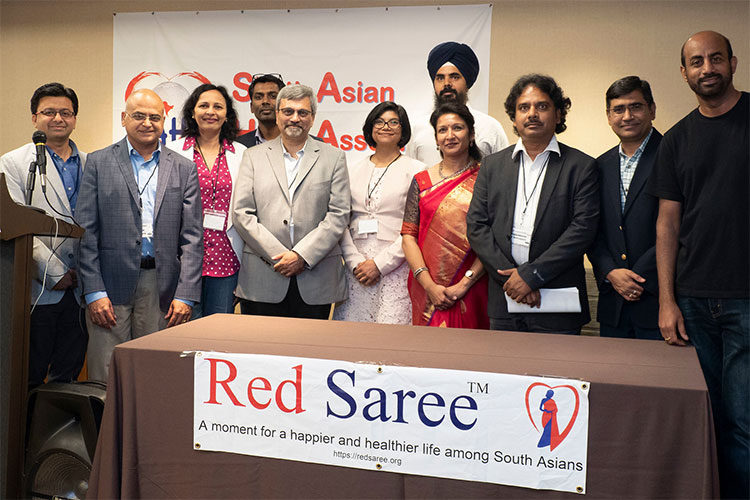
Members of the South Asian Heart Association (SAHA) joined three other groups for the first Asian Cardiovascular Symposium, held Sunday, July 28 2019 in Boston. The symposium was well-attended and included members of the Academy of Cardiovascular Research Excellence (ACRE), the Japanese Cardiovascular Group (JCS), and the Korean Cardiovascular Society (KCS).
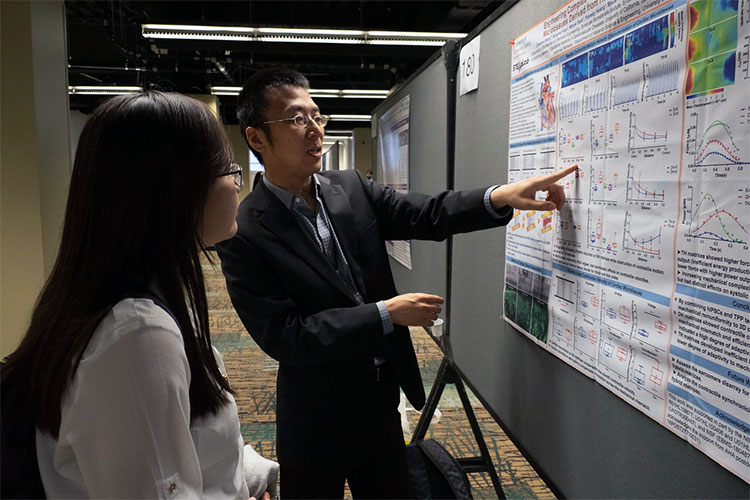
The symposium featured oral and poster presentations, as well as a dinner and award ceremony. The ACS gives cardiovascular professionals from across the world a chance to network and learn the latest in cardiovascular prevention and science.
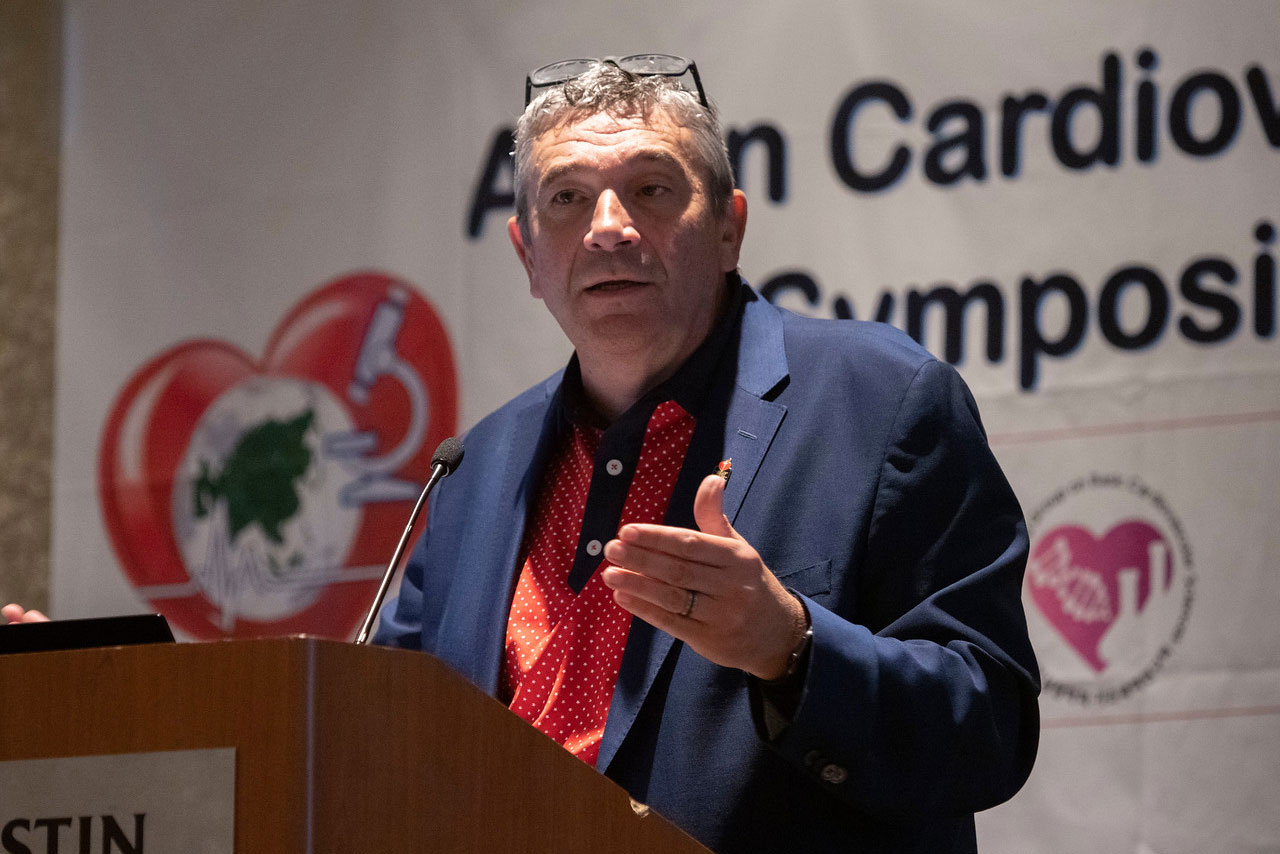
This year's keynote speaker was Walter J. Koch, PhD, of the Lewis Katz School of Medicine at Temple University in Philadelphia. See and download more photos from the Asian Cardiovascular Symposium. (link opens in new window)(link opens in new window)